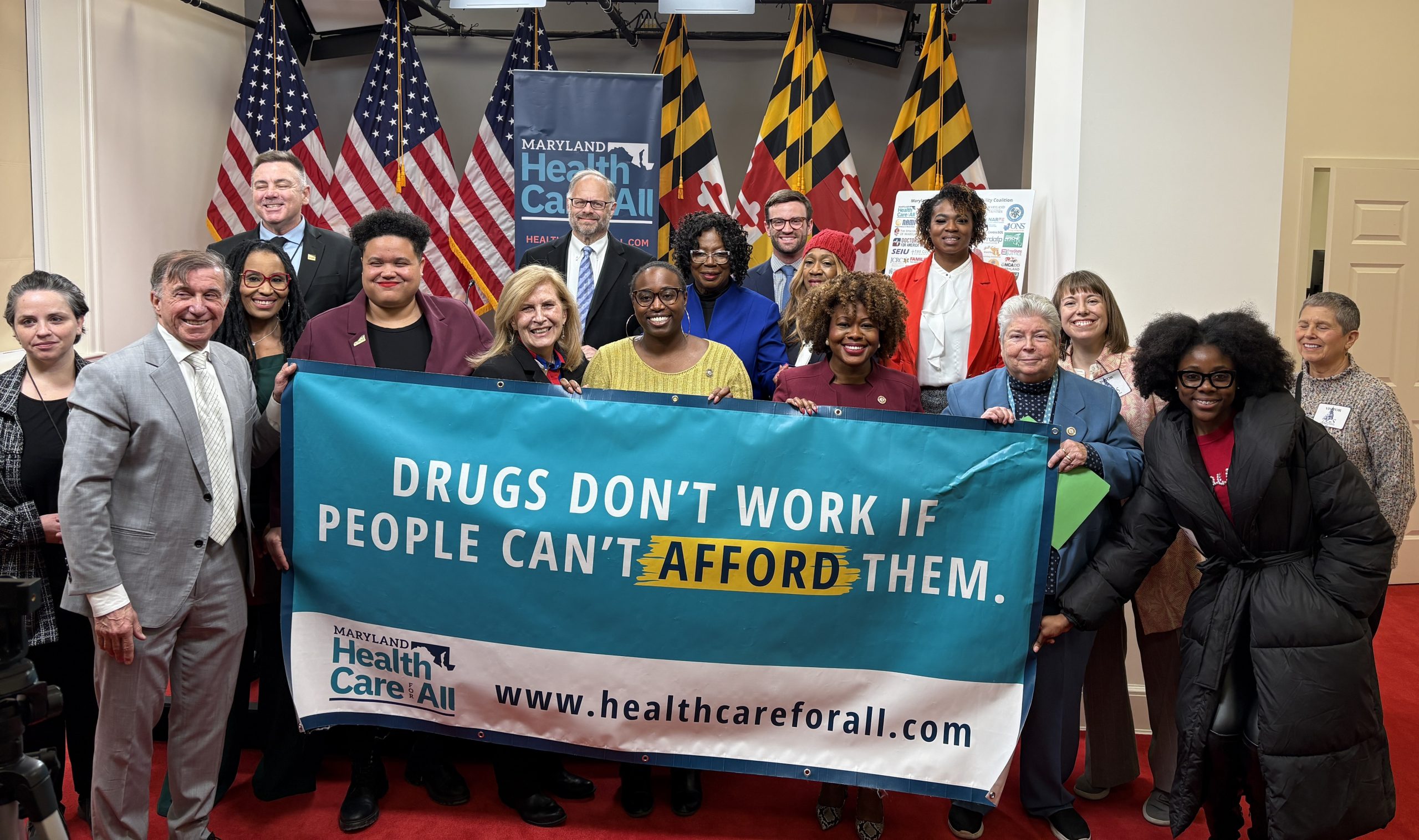From The Daily Record
By Vincent DeMarco
April 23, 2019
The General Assembly took major steps forward this year to make our state healthier. Lawmakers passed two landmark bills – one to expand access to health insurance by making enrollment far easier and one that will begin to bring down the soaring costs of prescription drugs.
The legislature deserves credit for passing strong measures that address these related health care challenges.
One bill will establish a new, simple way for people to sign up for health insurance – through the new Maryland Easy Enrollment Health Insurance Program. Far too many people in Maryland do not have health insurance, and it’s often because they don’t know how to enroll or don’t know that they qualify for affordable coverage.
Under the newly passed legislation, Marylanders can check a box on their state income tax form letting the state’s health care exchange know they want to enroll in health insurance. The exchange will use the information from the tax form to determine if the person may be eligible for Medicaid, the public health insurance program. If so, the tax filer will be automatically enrolled in Medicaid.
For other people who don’t qualify for Medicaid, the exchange will reach out to them to share information about available plans and subsidies that can make coverage far more affordable. It’s a straightforward way to link people to insurance options, using the annual tax filing process as a conduit. It’s creative and smart and we expect tens of thousands of Marylanders to use this new program to enroll in health insurance plans, giving them peace of mind and improving their health care.
Most of Maryland’s nearly 400,000 uninsured residents qualify for coverage but are not enrolled. Many will obtain the access to health care and financial security that results from quality, affordable insurance under this innovative legislation, which for the first time in U.S. history will let uninsured people apply for health insurance by just checking a box on their tax return.
The second bill addresses the reality that many people simply can’t afford the medications they need. Stories about people unable to pay for lifesaving drugs are all too common – and shocking – but Congress has failed to do something about it. That means Maryland had to act.
Drug affordability
Our bill establishes a Prescription Drug Affordability Board that will serve as a public watchdog. The board will have the authority to review the costs of certain high-cost prescription drugs that many Marylanders rely on to lead healthy lives. It can review those costs and set maximum costs to be paid by state and local governments for certain drugs they buy for their employees.
This board, with the approval of the Legislative Policy Committee, will be able to bring down costs for those drugs, saving these government agencies money and freeing up tax dollars for other public needs.
The board will also have the authority to study drug costs in the state and make broader recommendations for making drug costs more affordable for all Marylanders.
The board, the first of its kind in the nation, will over time become a critical force in bringing down the costs paid for drugs in Maryland.
Passing this important bill was an uphill battle. Lined up against it were an army of lobbyists representing the big drug manufacturers, which were determined to prevent Maryland from passing any kind of pro-consumer legislation. The industry fears that other states will follow Maryland’s lead and take steps to bring down drug costs. That we overcame that kind of highly paid resistance is a remarkable victory for the people of Maryland.
Maryland has a strong track record of being a leader in health care policy, and both bills passed this year establish first-of-a-kind public solutions to health care challenges. National experts are already touting our legislation as a model for other states to follow.
We made amazing progress this year to improve the health care system in Maryland, and the work will continue in the years ahead.
Vincent DeMarco is president of the Maryland Citizens’ Health Initiative.
Last modified: April 24, 2019


